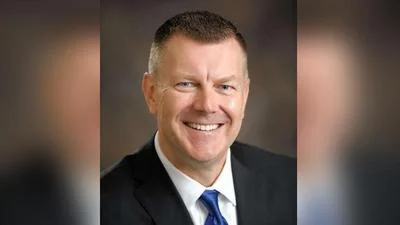Contributed photo
Contributed photo
U.S. Sen. Mark Kirk (R-IL) hosted a field hearing late last week at the Everett McKinley Dirksen Federal Courthouse in Chicago with several local whistleblowers to examine the alleged culture of corruption and misconduct at the Edward Hines Jr. VA Hospital in Hines, Illinois.
Kirk is introducing the VA Patient Protection Act, which would force the VA to specifically address reports of abuse and punish managers who retaliate, ignore or intimidate VA whistleblowers.
The hearing included testimony from Germaine Clarno, president of the AFGE Local 781 at Hines and Dr. Lisa Nee, a former cardiologist at Hines, who detailed the retaliation, patient abuse and manipulated scheduling practices they said were forced on them by supervisors and officials at the VA. The witnesses said that when employees at VA hospitals such as Hines attempt to question the treatment of ailing veterans, they often endure retaliation and several forms of abuse.
“If we want to protect our veterans, we have to protect those who care for them. Veterans around the country have people like Germaine Clarno and Dr. Nee – but threats of retaliation and firing from corrupt managers prevent the change our vets deserve,” Kirk, chairman of the Appropriations Subcommittee on Military Construction and Veterans Affairs, said. "My bill will protect our vets by giving whistleblowers protection and a voice."
Some of the key provisions of the VA Patient Protection Act:
• It would mirror the Marine Corps Request Mast, in which employees can file a complaint to the next-level supervisor if the immediate supervisor fails to properly handle their allegations.
• On first offense of retaliation, a supervisor would receive a minimum 12-day suspension. On second offense, he or she would be fired.
• It would tie supervisors’ performance ratings to how they respond to and deal with whistleblower reports and complaints.
• It would extend the current Whistleblower Protection Act to include all VA employees, including nurses and doctors, who are currently not protected from retaliation under the law.






 Alerts Sign-up
Alerts Sign-up